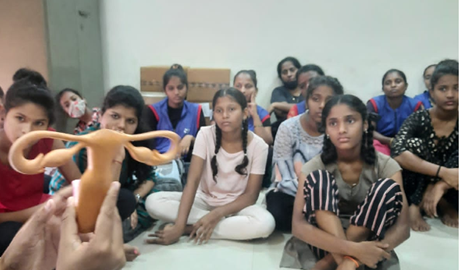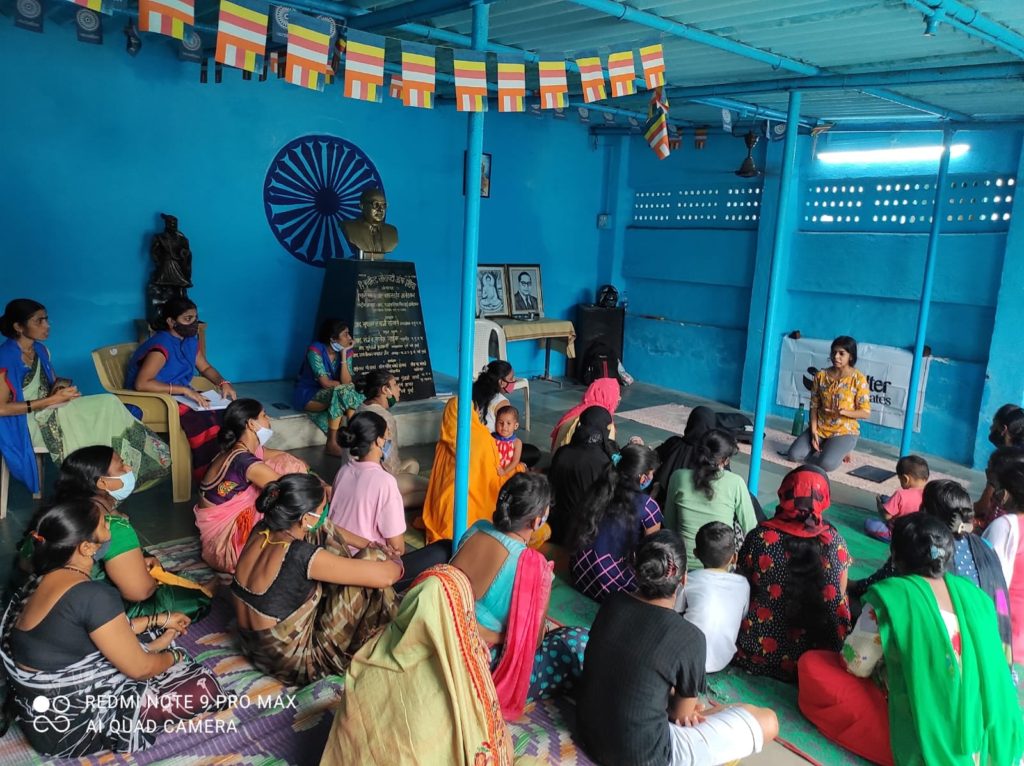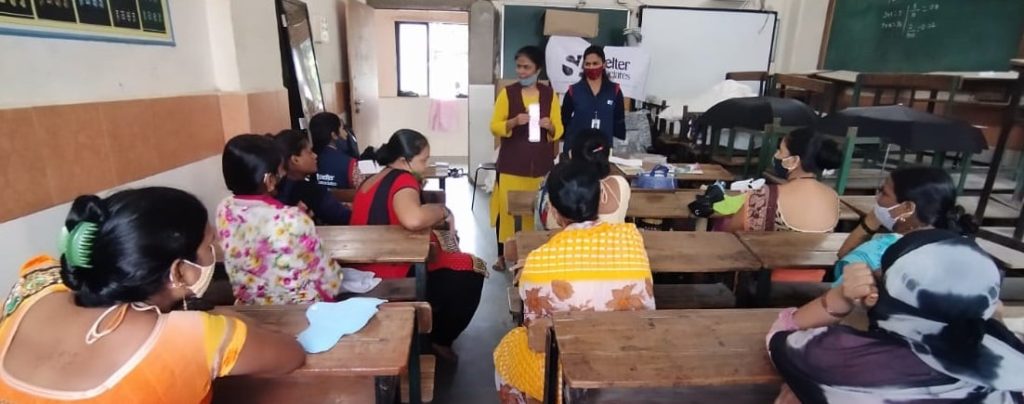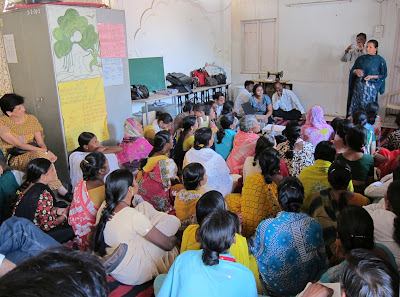Menstruation is an essential component of women’s reproductive cycle. However, in most parts of the world, it is still considered taboo and is rarely spoken about. Menstrual rituals and taboos have a severe impact on the lives of women and adolescent girls, reinforcing gender inequity and exclusion. Furthermore, studies have shown a strong link between poor menstrual hygiene and infections of the urinary or reproductive system, as well as other illnesses. Even well-educated women and girls have very less knowledge on menstruation than they must possess. It is true as people in their family never talked about PERIODS before. Girls start menstruating between the age group of 9-12 years and ignorance can lead to a different state of mind when approaching the first period. With stomach cramps and the fear of getting clothes stained, handling the menstruation cycle can be very challenging for every girl. In low-income areas, people start using rags while others have sanitary pads, menstrual cups, or tampons as an alternative. Each product has its benefits and drawbacks. Sanitary pads cause the most harm to nature as well as health. In a lifetime a woman uses around 11,000 menstrual pads which are either non-degradable or take a long time to degrade. The gel in the pads is harmful to individuals as it can clog the cervix from menstruating.

Women have their ways and preferences of handling the menstrual phase of their life. Personal preferences, resource availability, economic position, cultural customs and beliefs, education status, and knowledge about menstruation all have a role in how these techniques are implemented across the world. Menstruation hygiene practices are of great significance since they have a health impact; if ignored, they can lead to toxic shock syndrome, reproductive tract infections (RTI), and other vaginal diseases. In rural areas, women use clothes that create less pollution but are not always convenient. In some areas, women use sanitary pads but they dispose of them according to the availability of place, and their monthly habits. Sanitary pads from different brands cost a lot of money with a huge amount of waste generated; while on the other hand cotton cloth or rags are cost-effective with zero pollution. The best solution for zero waste during menstruation is to use good-quality reusable cloth pads or menstrual cups. These are safe for the body and the environment. The only prerequisite is to clean it properly and dry it before storing it until its next use. Use of safe and hygienic-sanitary products is one thing, but most importantly one should not be afraid of sharing their menstrual issues at home or with friends or family. Knowledge about female anatomy and changes that occur during menstruation should be educated in early adolescence. Your daughter or sister might be uncomfortable talking with you about their period as you would be, but this is the time to break barriers and communicate to educate. Menstruation should not be considered taboo in our society as every family has a mother, sister, or wife who goes through periodic pain and needs emotional as well as physical relief during the four days of menstruation.

Training and workshops on menstruation and menstrual hygiene management should be organized to enhance the knowledge of menstrual hygiene. Primary and Secondary school teachers should be taught and instructed on how to teach kids about menstruation and maintaining cleanliness and hygiene during such times. Adolescent girls and women should be made aware of the latest menstrual products, different manufacturers, healthy practices, government policies, and so on through personal interactions as well as social and electronic media. Subsidies on menstrual products should be provided so that every woman can afford them. Non-governmental organizations (NGOs) should step forward to teach rural residents about menstruation, menstrual hygiene, the necessity of home toilets, benefits of effective hand washing, knowledge about diseases of the reproductive tract caused by inadequate cleanliness, and so on. To avoid the problem of disposal, emphasis should be placed on the usage of reusable sanitary or cloth pads.
Shelter Associates is an NGO working for the welfare of the urban poor through its WASH interventions and has taken various measures to bring safe sanitation for the slum dwellers. A need to bring about transformation was urgently felt and we started conducting menstrual hygiene workshops for women living in informal settlements where we create awareness on the topic while advocating the use of cost-friendly and Eco-friendly products like cloth pads or menstrual cups. So far, we have conducted 100 such workshops in Navi Mumbai, and through discussions, sharing personal experiences, and demonstrations in a safe and friendly environment, we have helped more than 1300 women adopt the use of cloth pads or menstrual cups. Regular follow-up and guidance encourage them to spread the word within their communities. We plan to begin workshops in Pune, Thane, and Kolhapur soon.

 On 17th January, Shelter Associates gave a presentation in the community of Shivrai Nagar to tell residents more about their work, and celebrate the completion of 105 individual toilets in the settlement.
On 17th January, Shelter Associates gave a presentation in the community of Shivrai Nagar to tell residents more about their work, and celebrate the completion of 105 individual toilets in the settlement.